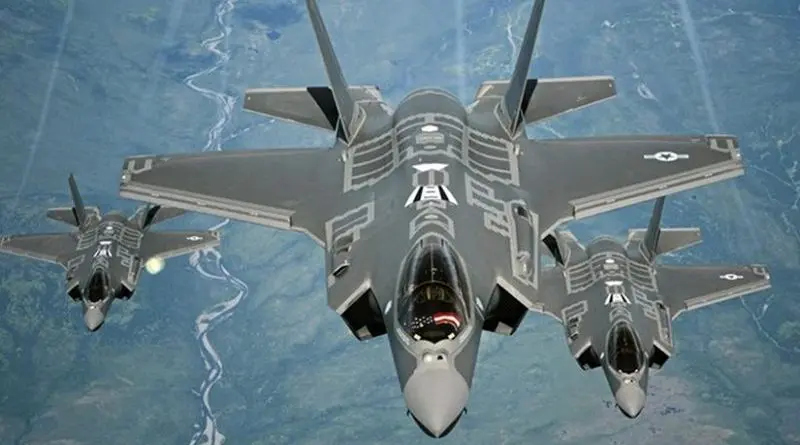US Declines Thailand’s Request For F-35 Jets
By BenarNews
By Nontarat Phaicharoen and Wilawan Watcharasakwej
The Royal Thai Air Force said Thursday that its request to buy two F-35A fighter jets from the United States had been declined due to concerns that it was unequipped to handle the advanced planes.
The new planes would have been the first step to updating Thailand’s aging fleet of 80 fourth-generation fighter jets, some of which use design concepts that are decades old and none of which can evade radar detection. They are the U.S.-made F-5 E/F and the F-16 A/B, and the Swedish-built JAS-39 Gripen.
The Vietnam War-era F-5s and many of the earlier commissioned F-16s are scheduled to be decommissioned in the next 10 years, according to the air force.
But the sale of the new U.S. warplanes cannot go ahead for now, air force spokesman Air Chief Marshal Prapas Sonjaidee said in a statement Thursday.
“The F-35 is designed with new approaches in terms of technics and operations in mind, with the ability to evade radar – stealth. Therefore, we have to invest in the U.S.-required basic infrastructure, training and security measures,” he said.
The U.S. has not ruled out the deal completely, Prapas said, adding even if it were approved delivery could take another 10 years at least.
“The U.S. would like to discuss future preparation to accommodate the purchase of the F-35A,” he said. “The U.S. suggests that, during the transition, the Thai Air Force should consider buying the 4.5 generation fighter jets such as the F-16 or the F-15 because of a quicker delivery schedule.”
A Royal Thai Air Force spokesman said U.S. Ambassador Robert F. Godec notified the military about the F-35A decision.
In Washington, a spokesperson said the U.S. State Department would not confirm or comment on diplomatic conversations related to proposed defense sales and referred BenarNews to Thailand’s Ministry of Defense for comment.
Thailand inquired late last year about buying the jets, worth $200 million in total, from U.S. weapons maker Lockheed Martin Corporation and JUSMAGTHAI, the U.S. government security coordination office in Bangkok.
When asked about the deal on Thursday, Thai Prime Minister Prayuth Chan-o-cha said: “What do we do? When they won’t sell we won’t buy … It’s a matter of trade.”
The U.S. Embassy in Bangkok did not reply to an immediate request for comment on the matter.
A 2014 coup led by Prayuth and Thailand’s military ties to China have strained relations with the U.S. in recent years.
The Bangkok Post reported in March that the U.S. had barred the use of American planes in the China-Thai air force exercises known as “Falcon Strike” because of the sensitivity of the jets’ high-tech equipment, citing sources in the Royal Thai Air Force.
Thailand instead used the Swedish-built JAS-39 Gripen. The event was suspended due to the COVID-19 pandemic in 2020, but resumed last year.
Dulyapak Preecharush, deputy director of the Institute of East Asian Studies at Thammasat University in Bangkok, said the breakdown in the F-35 deal was unlikely to have had anything to do with ties between the Chinese and Thai air force.
“The U.S. knows that if it freezes the relationship with Thailand, Thailand will automatically lean toward China, so the U.S. is careful about that,” Dulyapak told BenarNews.
More than 450 F-35s are in service in countries including the United Kingdom, Italy, Norway, Australia, Japan, South Korea and Israel, according to the U.S. Department of Defense.

